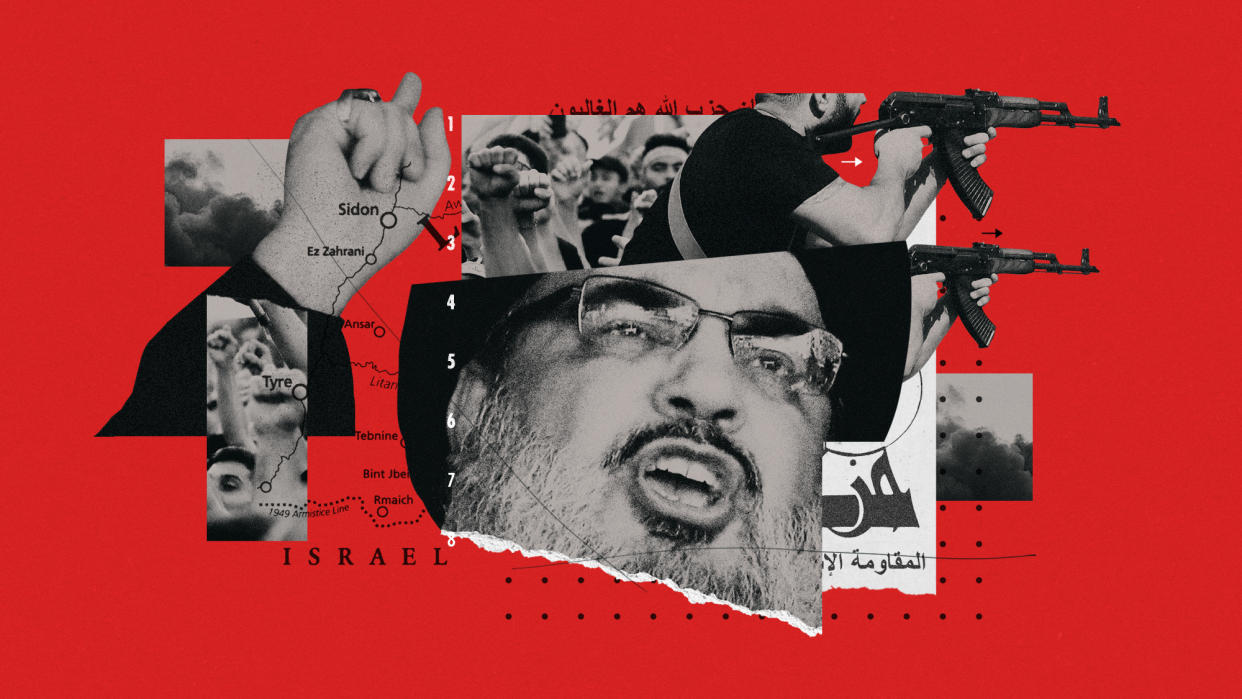Could Hezbollah defeat Israel?

"One rash move – one miscalculation – could trigger a catastrophe that goes far beyond the border, and frankly, beyond imagination."
That was the stark assessment of UN Secretary-General António Guterres last Friday, as tensions between Israel and Lebanon's Iran-backed militia group Hezbollah threaten to boil over into open war for the first time in nearly two decades.
Since Hamas's 7 October attacks on Israeli citizens, Western officials have been working tirelessly to try to prevent the war in Gaza from spilling over. But despite "strenuous efforts and stern warnings", the risk of an "expanding regional conflict is now rising by the hour", said Politico.
If that happens "it will be nothing short of a game-changer", Firas Maksad, a senior fellow at the Middle East Institute in Washington, told CNBC. Compared to Hamas, Hezbollah is "a much more formidable fighting force and widely recognised as the most powerful non-state military in the world", he said. Its involvement would have huge consequences "not only for Israel, but also for the entire region".
What did the commentators say?
Founded in 1982 by a group of radical Shia clerics in the midst of the Lebanese civil war, Hezbollah, or the Party of God, has a "well-resourced" medium-sized fighting force "that can defeat most Arab armies", said Time.
With backing from Iran estimated by the US to run to hundreds of millions of dollars a year, recent estimates by the Atlantic Council put Hezbollah's manpower at roughly 30,000 fighters and 20,000 reservists. Yet this number "likely does not include the thousands of non-combatant workers and volunteers across the country, including women who are not allowed to be official members of Hezbollah", said the Center for Strategic and International Studies think tank. The US State Department said that these numbers also fail to account for the thousands of members and non-member supporters worldwide.
ABC News reported that thousands of fighters from other Iran-backed groups in the Middle East are ready to come to Lebanon to join Hezbollah in its battle with Israel "if the simmering conflict escalates into a full-blown war".
Hezbollah leader Hassan Nasrallah said in a speech on Wednesday that militant leaders from Iran, Iraq, Syria, Yemen and other countries have previously offered to send tens of thousands of fighters to help Hezbollah, but that the group already has more than 100,000 fighters.
Since the last full-blown war with Israel in 2006, Hezbollah has "significantly expanded its arsenal and capabilities", said The Guardian. This includes acquiring suicide drones that Israel has struggled to counter, as well as anti-aircraft missile capability and an array of missiles that experts now believe number between 120,000 and 200,000, making it "the world's best-armed non-state group".
It has also gained vital battlefield experience. Hezbollah played a crucial role supporting the Assad regime during the brutal Syrian civil war, and has spent much of the last decade engaged in fighting in Iraq and Yemen.
What next?
After a short pause for the Islamic Eid al-Adha holiday, Hezbollah has resumed its daily rocket and drone attacks along Israel's northern border, with its fighters and commanders being targeted by Israeli strikes in response.
Nasrallah has made it clear that Hezbollah is not currently seeking all-out war – and that his forces will continue their current wave of attacks for as long as the fighting in Gaza continues. He also warned that "no place" in Israel would be safe if a fully-fledged conflict breaks out.
As of today, The Spectator said, "the tactical advantage is clearly with Israel". And more than a third (36%) of Israelis believe the country should launch an immediate attack, a poll from the Jewish People Policy Institute found.
The reality is "neither side will fight with kid gloves – both have the capacity to inflict terrible damage on the other", said Politico. "Israel has the ability to flatten Lebanon and has warned it will do so in the event of war – what's happened to Gaza only reinforces that threat. And Hezbollah isn't the Hezbollah of 2006. It's much better armed" and "has made clear it will take the fight right into the heart of Israel."
If war against Hezbollah does begin, the Gaza fighting will have been only an "overture", said journalist and Middle East analyst Jonathan Spyer in The Spectator. "And if Tehran's most prized proxy is threatened with destruction, the prospect of the direct entry of Iran and its remaining proxies into the fight will be very real."
